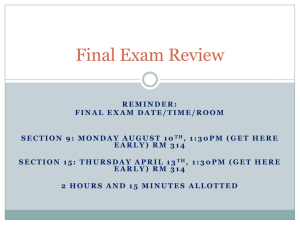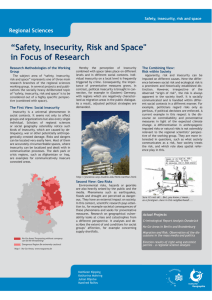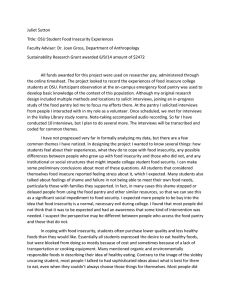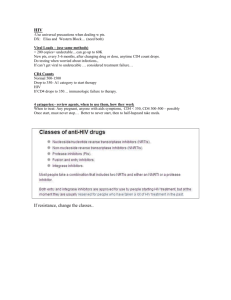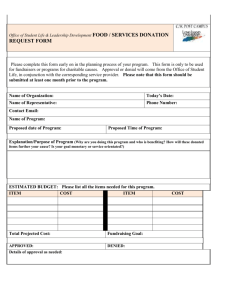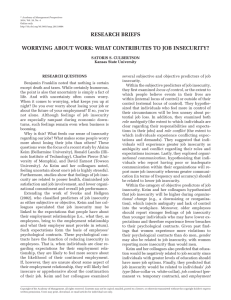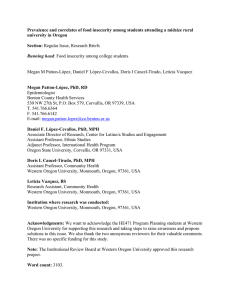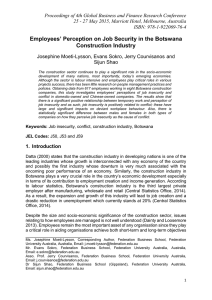Center for Child Health, Behavior and
advertisement
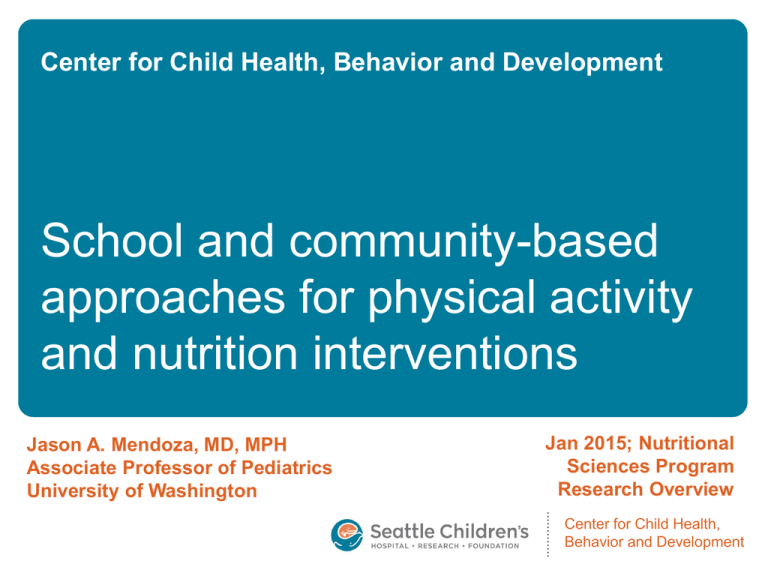
Center for Child Health, Behavior and Development School and community-based approaches for physical activity and nutrition interventions Jason A. Mendoza, MD, MPH Associate Professor of Pediatrics University of Washington Jan 2015; Nutritional Sciences Program Research Overview Center for Child Health, Behavior and Development Cluster RCT of the WSB program Long-term, efficacy trial, 2012-2017 • • • • • n=22 schools and n=400+ students 4 schools in Year 1 6 schools each in Years 2-4 3rd-5th graders low income schools, matched by school SES and ethnicity Intervention: WSB program led by staff • • offered 5 days/week, students decide when to walk start Sept/Oct and end in April/May of each study year Center for Child Health, Behavior and Development Walking school bus A group of children led to school by parents/adults who walk together along a set route (active commuting) Addresses safety concerns: supervised period of physical activity and pedestrian safety teaching Pedestrian safety is modeled and taught Center for Child Health, Behavior and Development Cluster RCT of the WSB program Primary outcome: weekly rate of ACS Secondary outcomes • • • MVPA (accelerometers) BMI z-score Pedestrian safety behaviors Moderators and mediators • Walkability/built environment (Chanam Lee, Texas A&M and Anne Vernez Moudon, University of Washington) • Parent/child self-efficacy and parent outcome expectations Partners: Seattle & Federal Way Public Schools, Feet First Center for Child Health, Behavior and Development Pilot Bicycle Train RCT Specific Aims: 1. Validate algorithms examining concurrent accelerometry and GPS data to measure children’s physical activity intensity and duration while cycling vs. heart rate monitoring and direct observation 2. Evaluate among 4th and 5th grade ethnic minority children (n=60) the feasibility of a pilot cluster RCT of a Bicycle Train program • Recruitment • Participation • Barriers/Facilitators Partners: SPS, Cascade Bicycle Club, Bike Works Center for Child Health, Behavior and Development Other research projects Reducing TV viewing to prevent obesity in Hispanic preschool children • Current Nutrition MS student, Catherine Karlak, is leading analyses on TV parenting practices • Thesis: Examining correlates of TV parenting practices among Latino preschoolers in Head Start. Center for Child Health, Behavior and Development Other research projects The role of food insecurity (FI) on CD4+ counts among pediatric HIV+ patients • Adolescents and young adults in Houston, TX • Mendoza JA, Paul ME, Schwarzwald H, et al. Food Insecurity, CD4 Counts, and Incomplete Viral Suppression Among HIV+ Patients from Texas Children’s Hospital: A Pilot Study. AIDS and Behavior. 2013;17(5):1683-1687 • 2-6 year old children in Gaborone, Botswana • Mendoza JA, Matshaba M, Makhanda J, Liu Y, Boitshwarelo M, Anabwani GM. Food Insecurity and CD4% Among HIV+ Children in Gaborone, Botswana. Journal of acquired immune deficiency syndromes. 2014;66(4):414-418 • Future studies: • Cohort study – longitudinal relationship between FI and CD4+ counts • Intervention stud(ies) to decrease food insecurity and evaluate impact on CD4+ counts Center for Child Health, Behavior and Development Other research projects Title: Food insecurity and clinical outcomes among children with type 1 diabetes mellitus • Specific Aim: Examine the association of food insecurity with HbA1c and healthcare utilization • Ancillary study to the SEARCH for Diabetes in Youth study • Data collection ongoing through Spring 2014 Center for Child Health, Behavior and Development Other research projects Title: A wearable mHealth device to promote physical activity among adolescents • Pilot study’s aim is to assess feasibility • Intervention: Fitbit Flex & customized Facebook group page • • Goal: 12k steps/day or gradual increase towards target Rewards/badges • Planning to adapt for other populations, e.g. pediatric cancer survivors, teens with ADHD to decrease symptoms Center for Child Health, Behavior and Development Questions? jason.mendoza@seattlechildrens.org Center for Child Health, Behavior and Development

